Why Did I Travel to Eritrea?
I was waiting with publishing my post on Eritrea for months now. I wasn’t sure if I should focus just on my in-country experience, as after I included some fact on the actual situation in Eritrea on my Instagram posts, I apparently made some Eritreans feel uneasy.
Some people didn’t like the fact that I talked about the bad situation in Eritrea instead of just focusing on only the good parts I experienced as a visitor. Because let me be clear, Eritreans are wonderful people and their country is beautiful.
That said, I decided that in order to give people a glimpse of Eritrea I need to talk about both aspects. After all, if I didn’t I probably would have offended others who’d say that I’m not talking about a bigger picture.
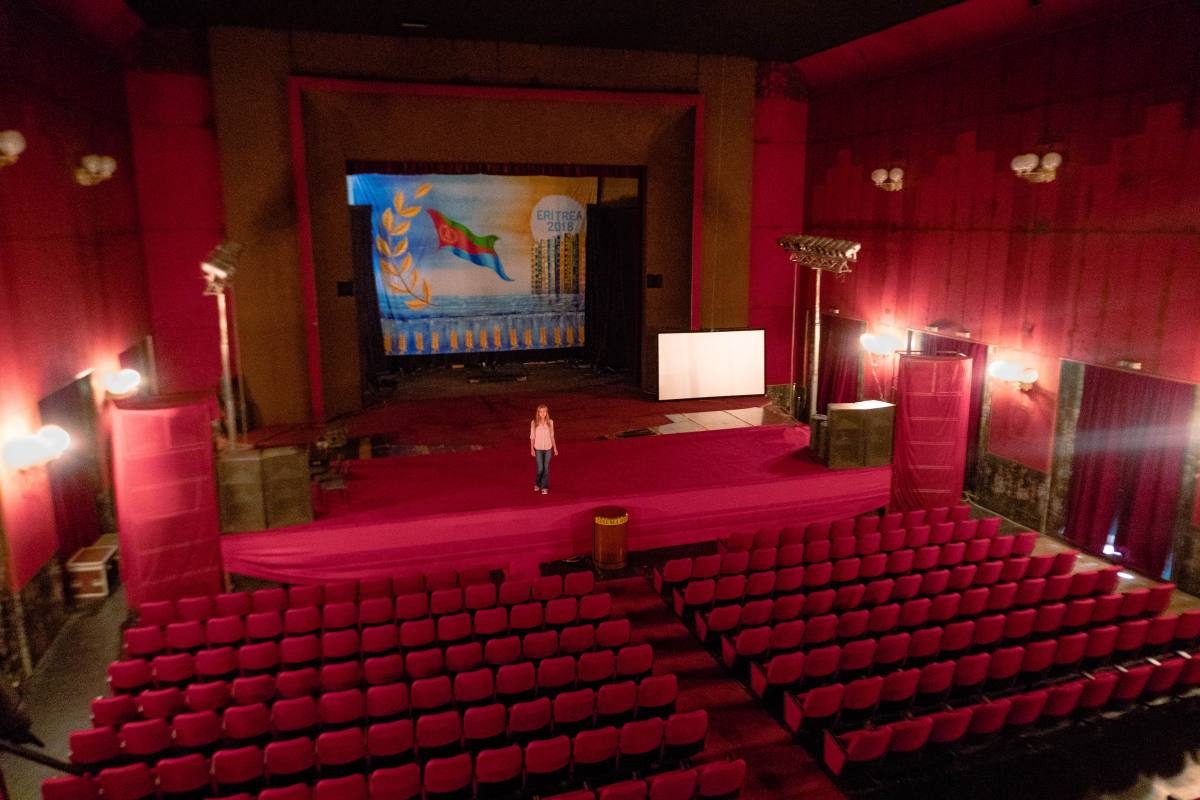
Where is Eritrea?
Eritrea is one of the most mysterious countries in the world. Most people don’t even know about its existence, or what’s really going on inside the country. Media also rarely reports on the in-country situation, with the exception of last week’s news. For 2 decades, little besides soldiers, refugees and rebels moved across Ethiopia and Eritrea’s closed border, but today the once-barren no man’s land teems with activity.
If you Google Eritrea, you generally won’t find much information about it. If you check news sites, there will be just a few articles about Eritrea, mostly covering the difficult situation of the Eritrean refugees abroad or the concerns regarding human rights there.
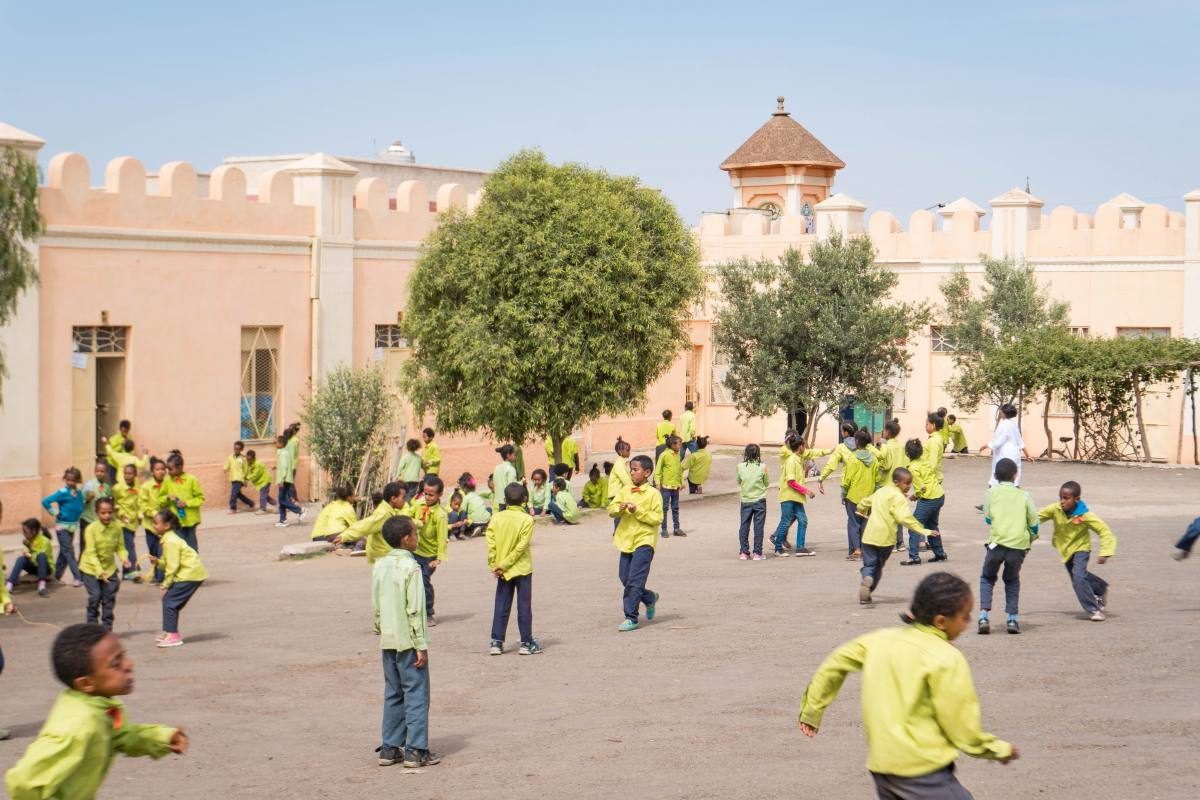
Despite the lack of news one thing is clear – Eritrea is not Wakanda, it’s actually the opposite. It has the highest amount of refugees in the world, with over 1000 people leaving the country every month and 80% of Eritreans not happy with their life situation. With the country not actually being at war, one should ask why?
However, most people rarely ask about Eritrea while the world’s attention is focused on countries like Syria, North Korea, or Palestine. Ironically, the situation for Eritreans is often worse. Not without reason, the HRW calls Eritrea the North Korea of Africa.
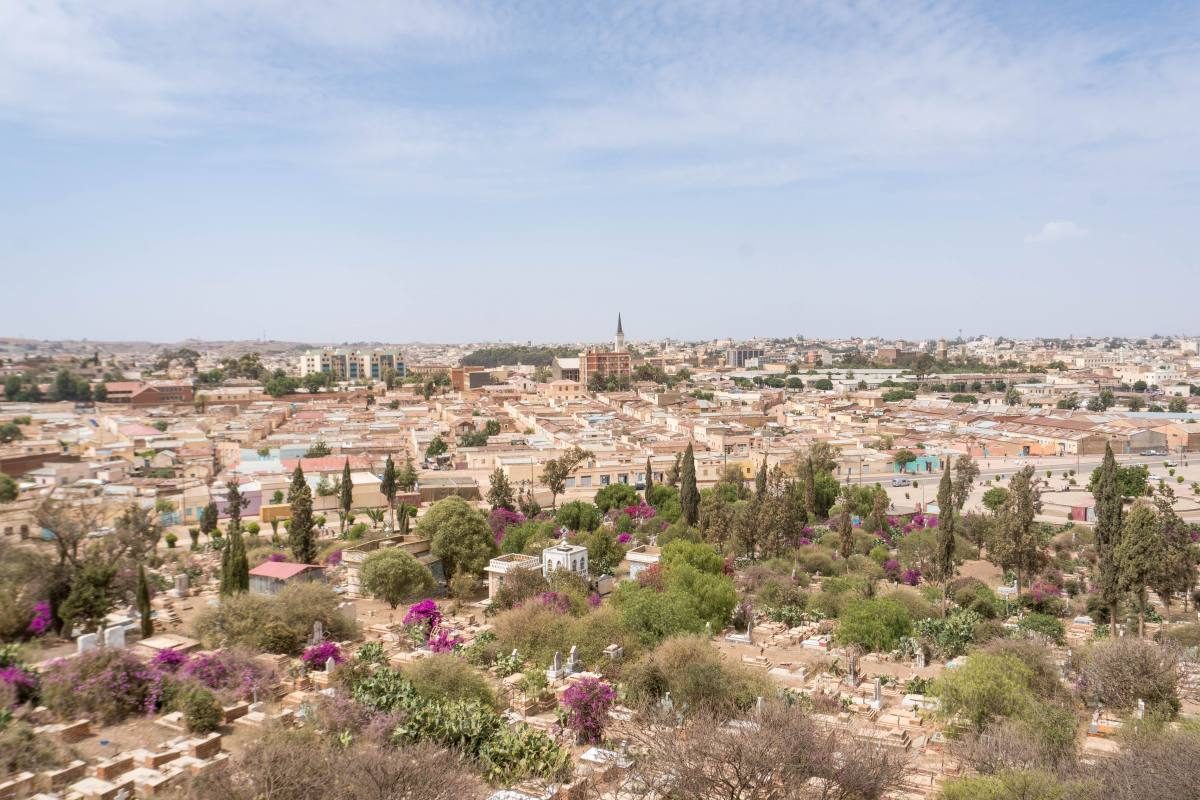
Why Did I Travel to Eritrea?
I’ve been intrigued by the lack of information about Eritrea, and the research proved to be the toughest I’ve ever done on any country. Almost all academic books published on Eritrea are written by researchers who have never actually visited Eritrea. When I attended a lecture on Eritrea at Georgetown University the professor showed us a documentary on Eritrea, but neither the professor nor the producers of the documentary ever visited the country.
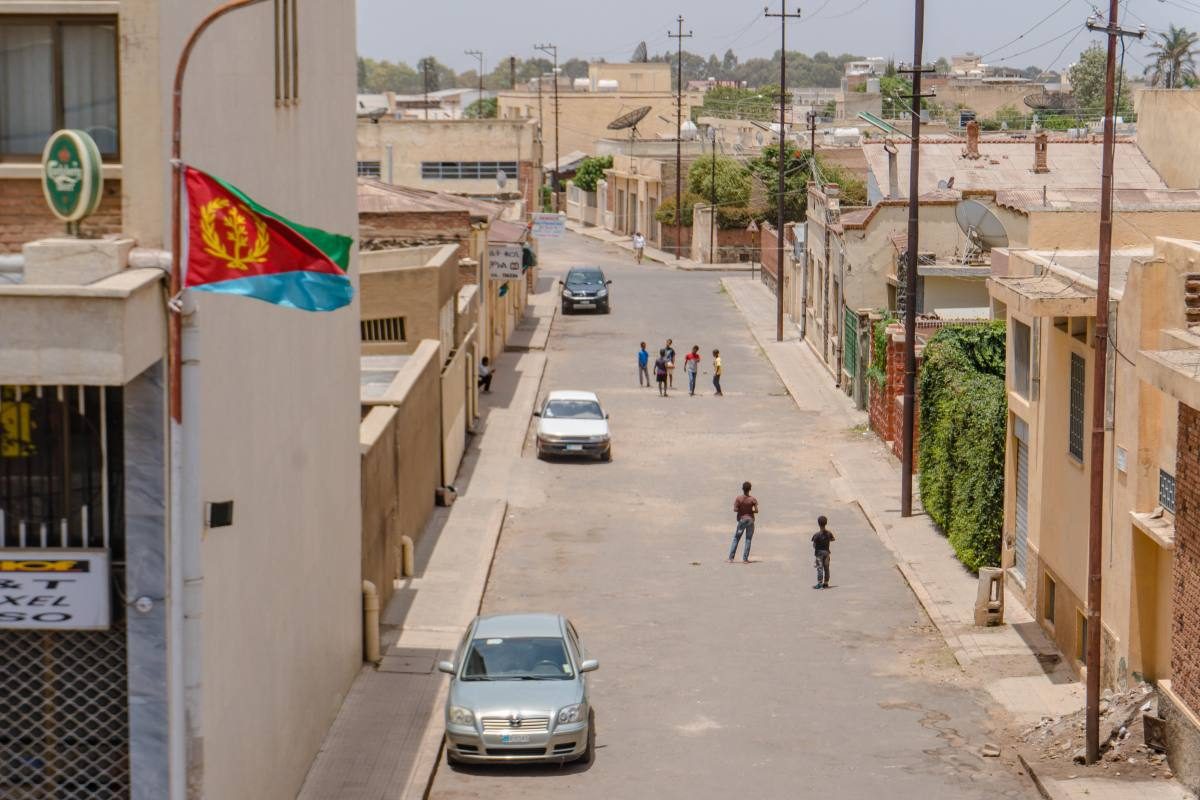
Meghan Markle advocated for the situation in Eritrea at One Young World, but also never made it to Eritrea. It stunned me that the majority of researchers and advocates based their information on relations from Eritrean refugees and no one ever tried to enter the country, undercover or not.
Based on my past experience working on women’s rights in Mexico, I knew that when it comes to topics concerning human rights, we can often experience a discourse between academic research and practical in-country investigation. I made it my mission that if I’m ever to speak on human rights issues in Eritrea, I need to see the full picture.
I had to see Eritrea with my own eyes, so I stayed quiet about the trip in order to obtain a visa. It’s not easy to travel to Eritrea and even harder to travel around Eritrea (and it actually became even harder after I left the country), but thanks to traveling in a group I experienced almost no issues.
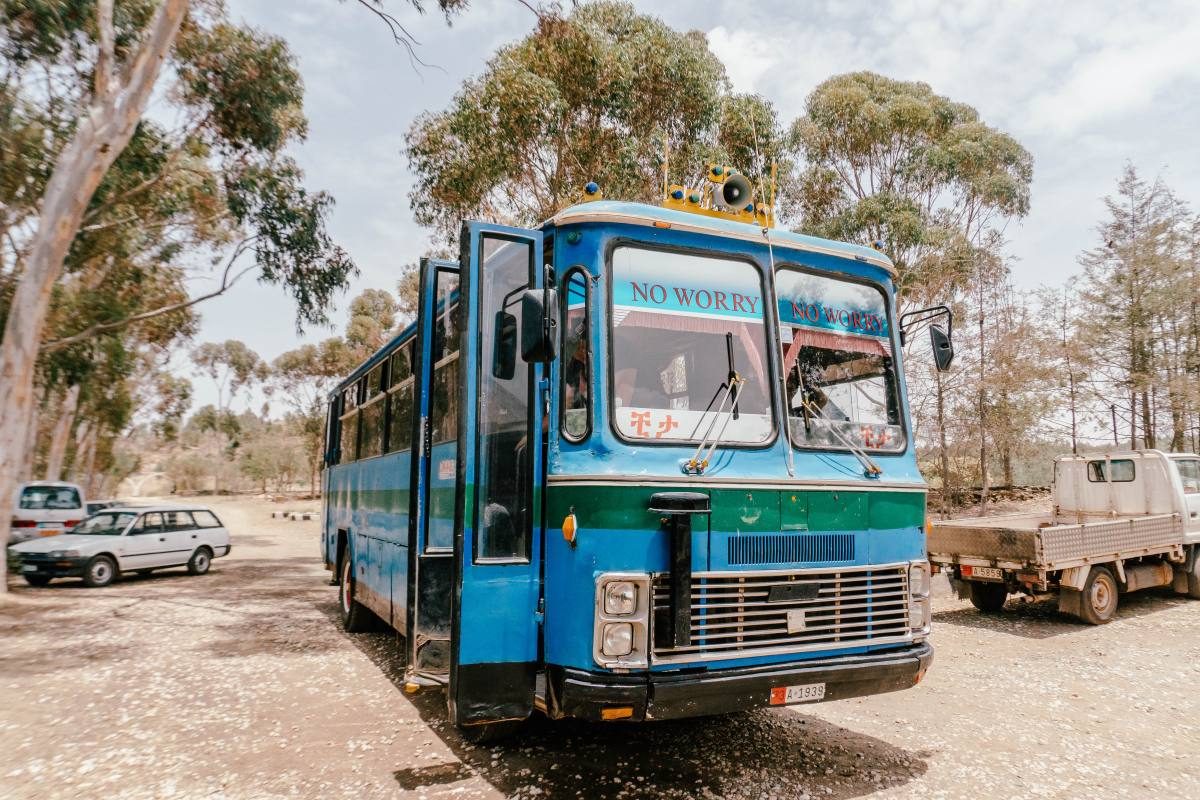
After what I saw, learned and knew from other sources, if I had to describe Eritrea in one word I’d say ‘complicated’. Any researcher will tell you that Eritrea is one of the most isolated and repressive countries in the world, with young people having no future. Their choice is to undertake compulsory national service or try to flee. If you don’t do your research beforehand and go to Eritrea because you want to tick all the countries from your list, or visit ‘difficult’ countries, as a tourist you will experience a sugar-coated experience.
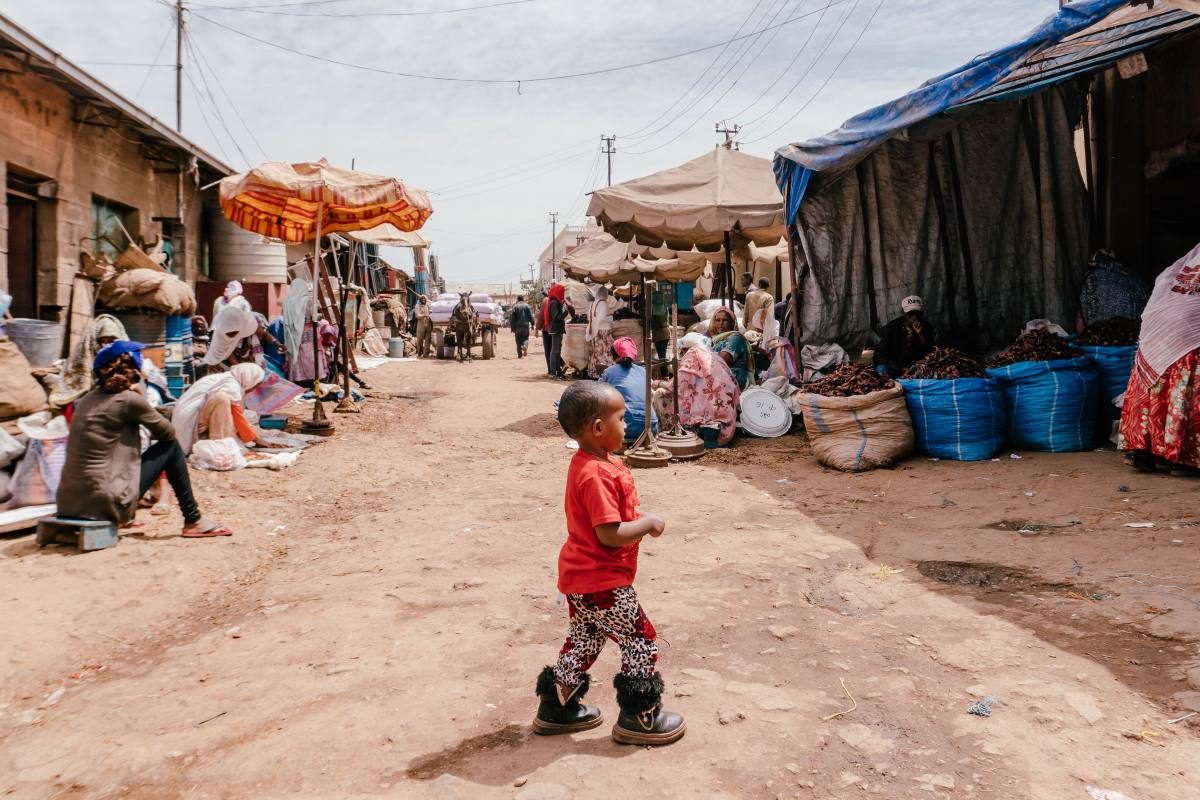
But is Eritrea isolated in terms of access to information and situation outside of Eritrea? Not anymore these days. Definitely not as much as Iran or Cuba. In cafes in Asmara, you can see BBC World News or CNN being on most of the time. While Internet is not as widely available as in the Western World, there are many cafes that are always full of people. While it’s incredibly slow and certain things work for certain devices (for some reason I got everything to load and once after 20 minutes I was even able to upload a photo to Instagram), locals mostly watch movies and videos there.
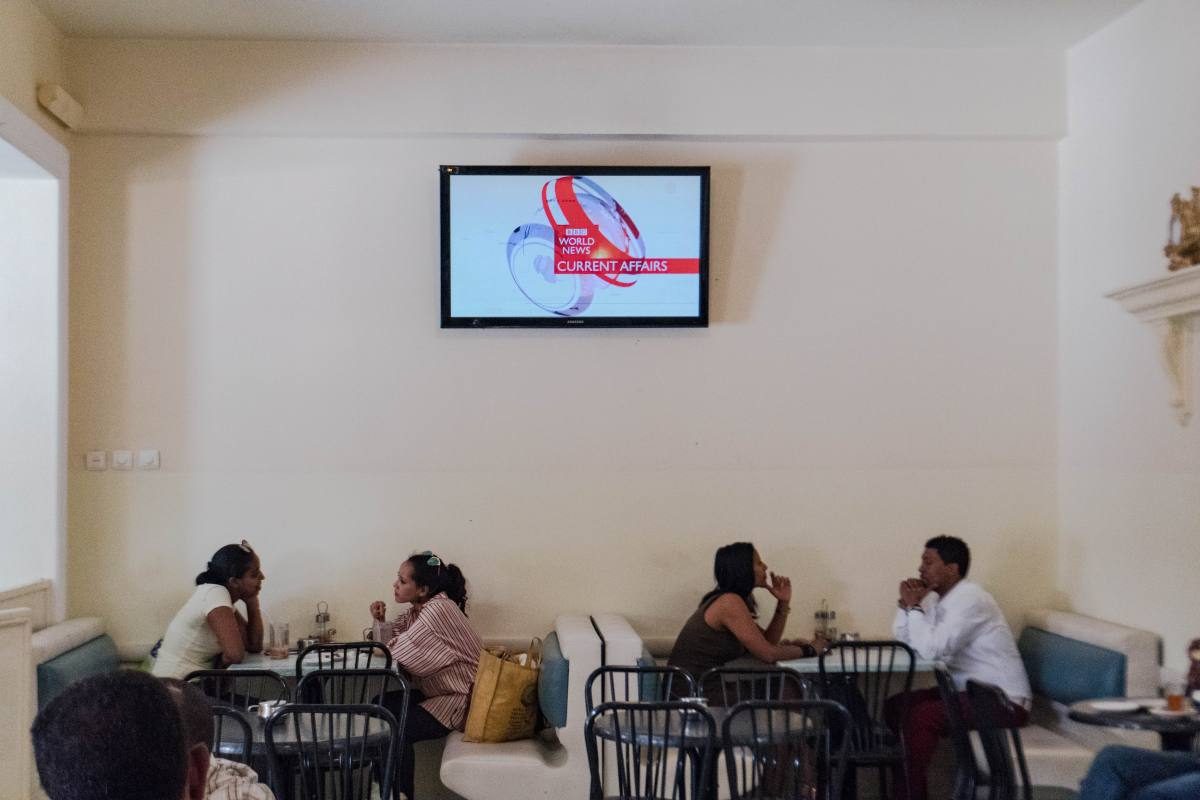
National Service in Eritrea
Local guides will never admit to you what’s actually happening. They’re hired to tell you things the government wants tourists to hear about Eritrea. For instance, Eritrea has a compulsory national service for men and women. Conscripts often work 72-hour weeks in extremely harsh conditions with inadequate food and low pay. No one can legally take a leave, which depends on the whim of commanding officers and some report going years without being allowed to visit home. If a conscript fails to return after taking leave, their parents may be jailed until they do. And by jail, it often means a shipping container in the middle of nowhere which one guard actually informally admitted to my group.
To tourists and outside Eritrea, the national service is known to last about 1 to 6 years. I kept asking locals about the length of the national service and every time I was receiving a different answer. 2 years, 5 years, 10 years, 27 years. My local guide, as friendly as she was, claimed that the service lasts 1 year and everyone WANTS to do it to learn about the military. I don’t blame her for not telling me about something that could get her in trouble.
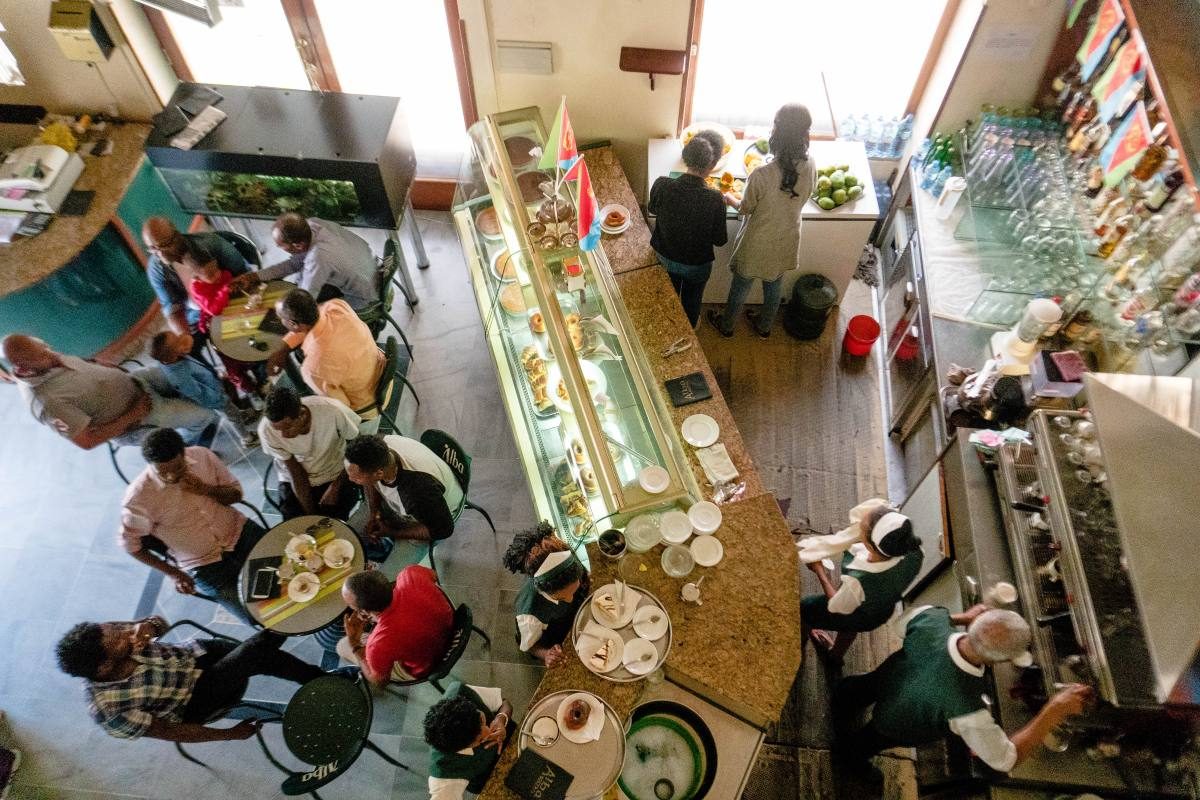
One person from my group asked me: why do you keep asking this question about the length of military service? Simply because I wanted to see how many people are willing to open up. Some did, mostly those who lived abroad, got another passport, and returned to Eritrea many years later.
One man I spoke to, after he realized that no one around him spoke English, told me that the national service can keep you as long as they want to keep you there. They pay every person a ration of 1000 nakfa per month, and to put this into a perspective a dinner at the restaurant costs 120-200, while a small bottle of water in a store is 12 Nakfa. Not without a reason their national service is not only described by UN and Human Rights Watch as non-community voluntary thing but often slavery.
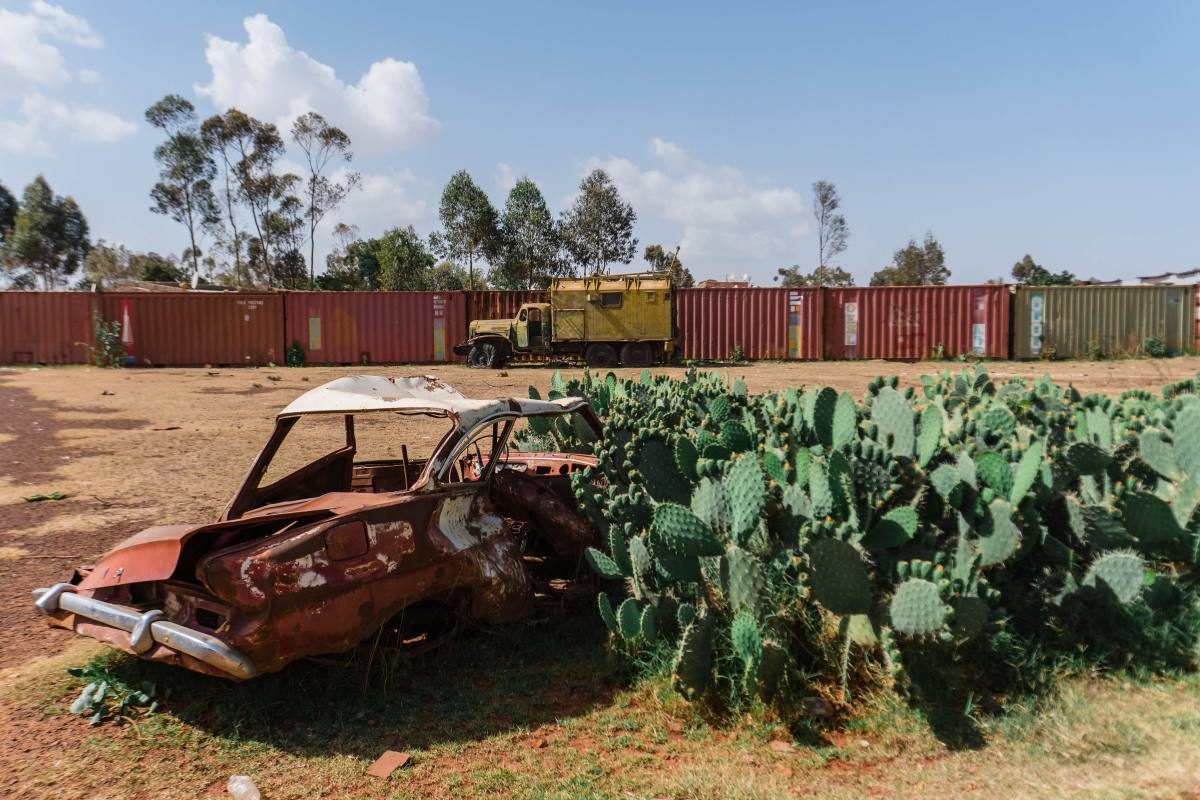
Can People Flee Eritrea Then?
As Africa’s most secretive state and the source of tens of thousands of migrants who have fled towards Europe, fleeing often isn’t as easy. Even if someone gets out of Eritrea, that could be just the beginning of their troubles. The kidnapping of refugees is happening way too often in countries neighboring Eritrea. You won’t read about in the news apart from very rare articles, but there are various organizations helping families of kidnapped women and girls pay the ransom required. If no one pays, they get raped and tortured over and over again. If they happen to make it all the way to Israel, they often get deported to Rwanda.
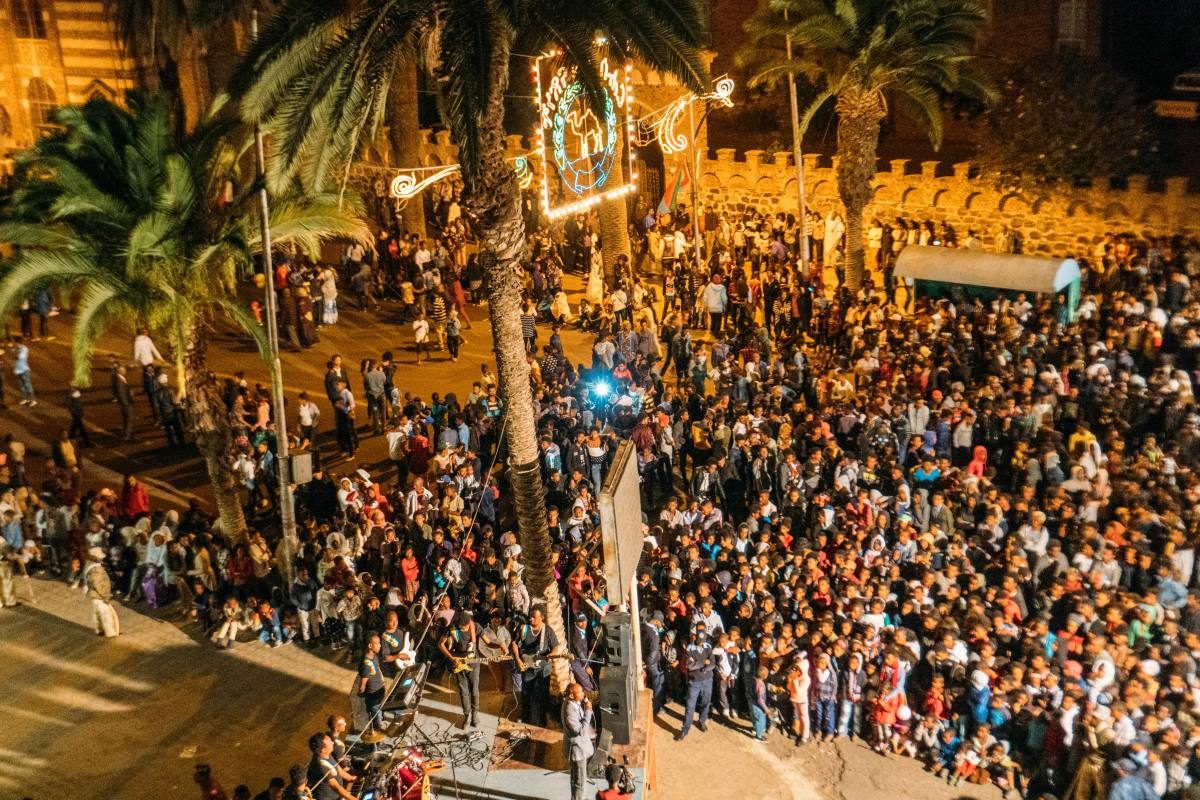
Living Conditions in Eritrea
Even as a tourist in Eritrea, you shouldn’t expect luxury. Hotels are very basic, but with normal beds and hot water in the shower. My hotel in Asmara even had air conditioning. Many locals don’t have the same privileges though, especially those living outside of Asmara.
Asmara vs the rest of the country gives an impression of capital vs district 13 in Hunger Games. The capital has beautiful buildings with modern Italian architecture and perfect asphalt roads. There are some cute restaurants, colorful ice cream stores, gorgeous cinemas and I even went to a bowling alley (human/kids operated, but still a bowling alley). It’s very different from most African cities and if a tourist visits just Asmara they’d think that life is wonderful there. The moment you leave the capital you can see how most people truly live. You’ll see houses made of clay, people living in cardboard or steel boxes, often partially destroyed.
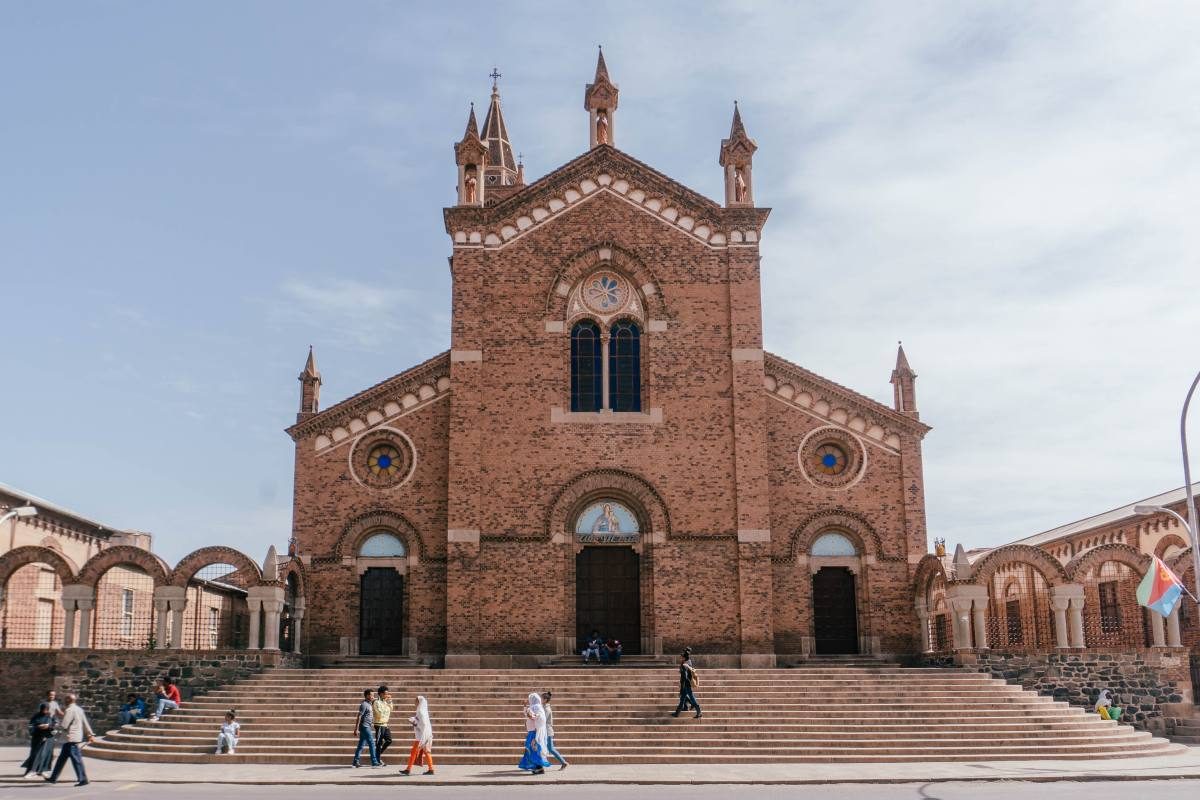
As I saw first-hand, quite often four women can share one room despite having a job and working more hours than we might when working full-time.
Strolling through the town of Massawa, you can see how gorgeous it used to be, but a lot of it got destroyed during the Eritrean War of Independence from Ethiopia, as The Battle of Massawa was very brutal. Ethiopians used napalm bombs bought from Israel to bomb civilians and the city. Some of the Massawan coral buildings are still standing, but a gorgeous Turkish bank got bombed and mostly destroyed. There are still people living in the old town, using the remaining buildings as a shelter.
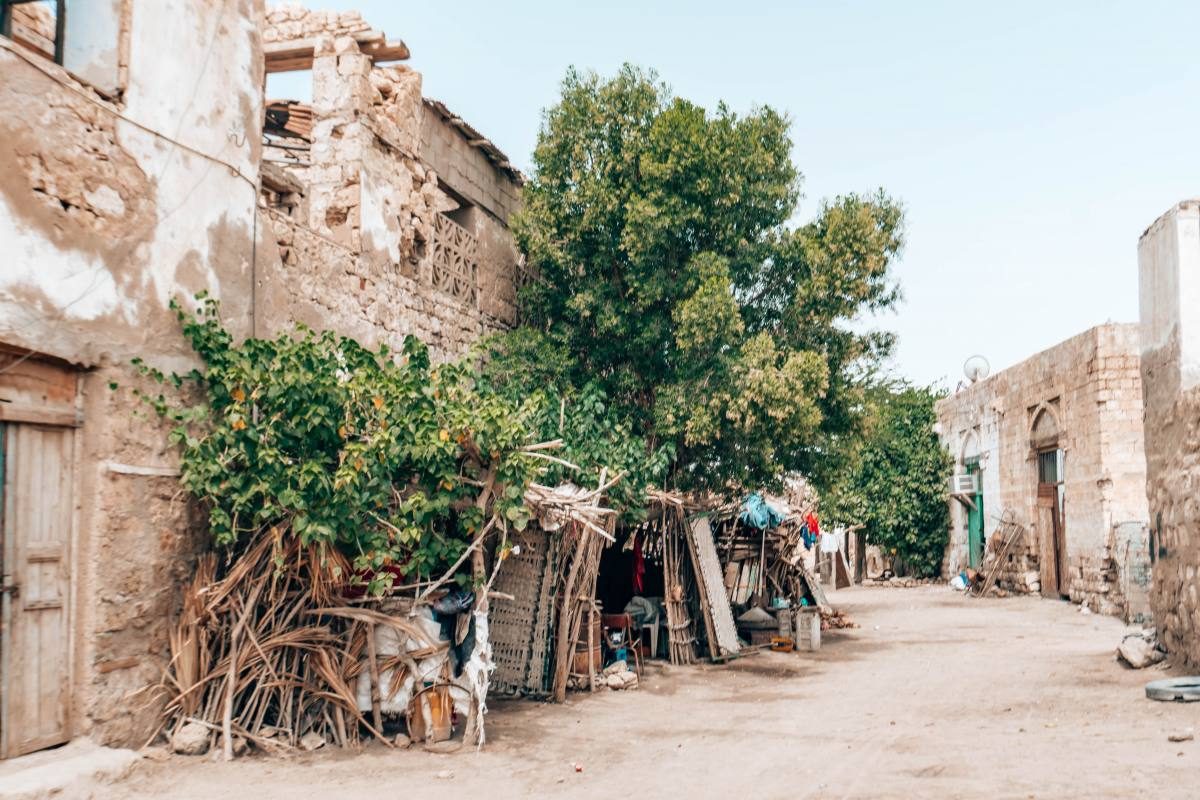
Friendly Eritreans
Don’t think that despite hard living conditions locals don’t try to enjoy their lives. They make the most of everything and it’s quite refreshing to see. On a Saturday there were so many locals on the beach in Massawa, playing games and enjoying themselves. This pet camel was there for everyone to take photos with before it went home apparently.
While after visiting several African countries I must say that Eritreans are some of the friendliest people I’ve encountered. I felt it from the minute I got on a plane to the capital Asmara where I was the only tourist. I immediately felt welcome and could sense a community between fellow Eritreans who were coming to visit their motherland.
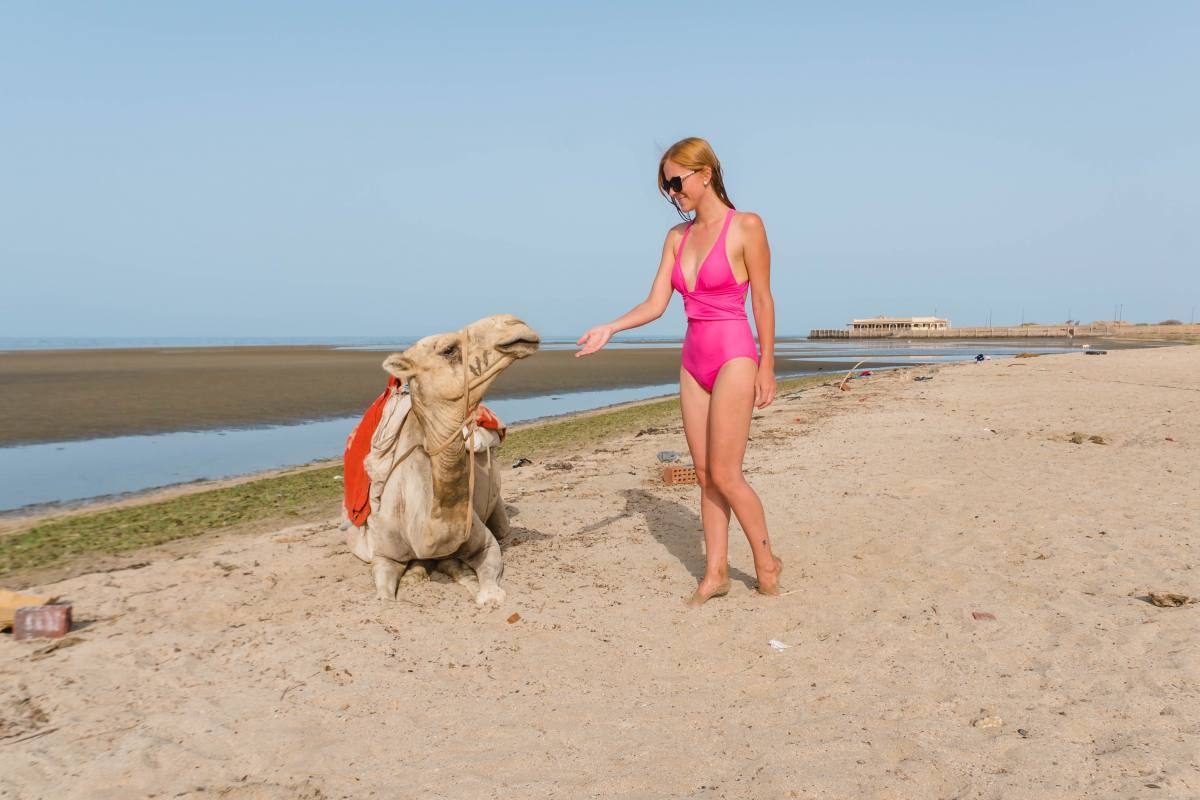
When visiting Keren for a special religious festival, I sat down with a group of guys from my group. When a local family saw that we had nothing to picnic with, they immediately shared their bread with us. Another person offered us coffee. They didn’t want us to sit there while they were eating, even though they didn’t have much themselves.
Another day my friend and I got caught in the rain. We were hiding under the roof of a closed cinema when two girls waved at us and invited us into their home and offered coffee. With the little English they knew, they told us their stories and wanted us to feel welcome.
These gestures were so simple and human, yet, in the Western World they’ve unfortunately stopped being normal. For example, when was the last time you invited a stranger into your home from off the street?
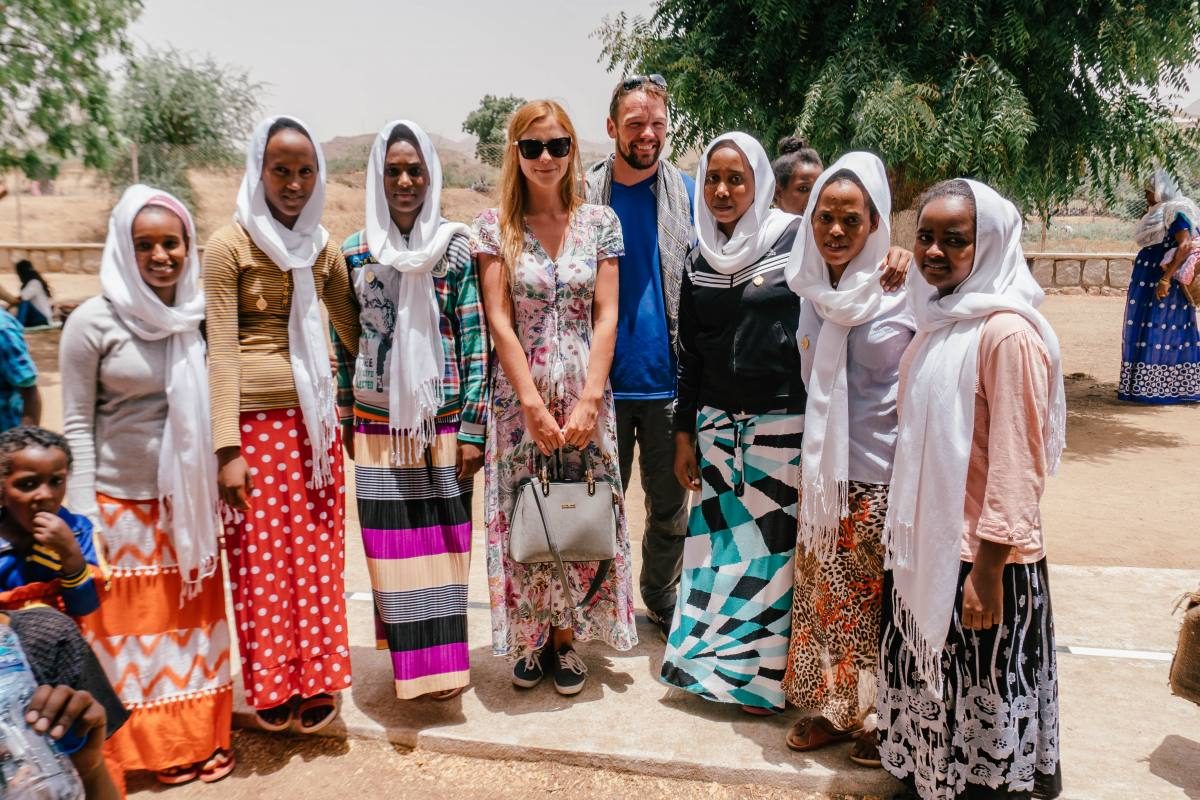
That said, despite the situation Eritrea is a beautiful and amazing country in a tough situation. I’m not saying that I have learned everything there is to know about the country, as I barely scratched the surface, but I’m glad I traveled to Eritrea and met so many friendly locals. I’ve always felt welcomed warmly and never really felt unsafe as a visitor. If you decide to visit Eritrea try to learn about the history and resiliency of the Eritrean people.
READ MORE ON: How to Visit Eritrea
Questions? Thoughts? Let me know in the comment section below!

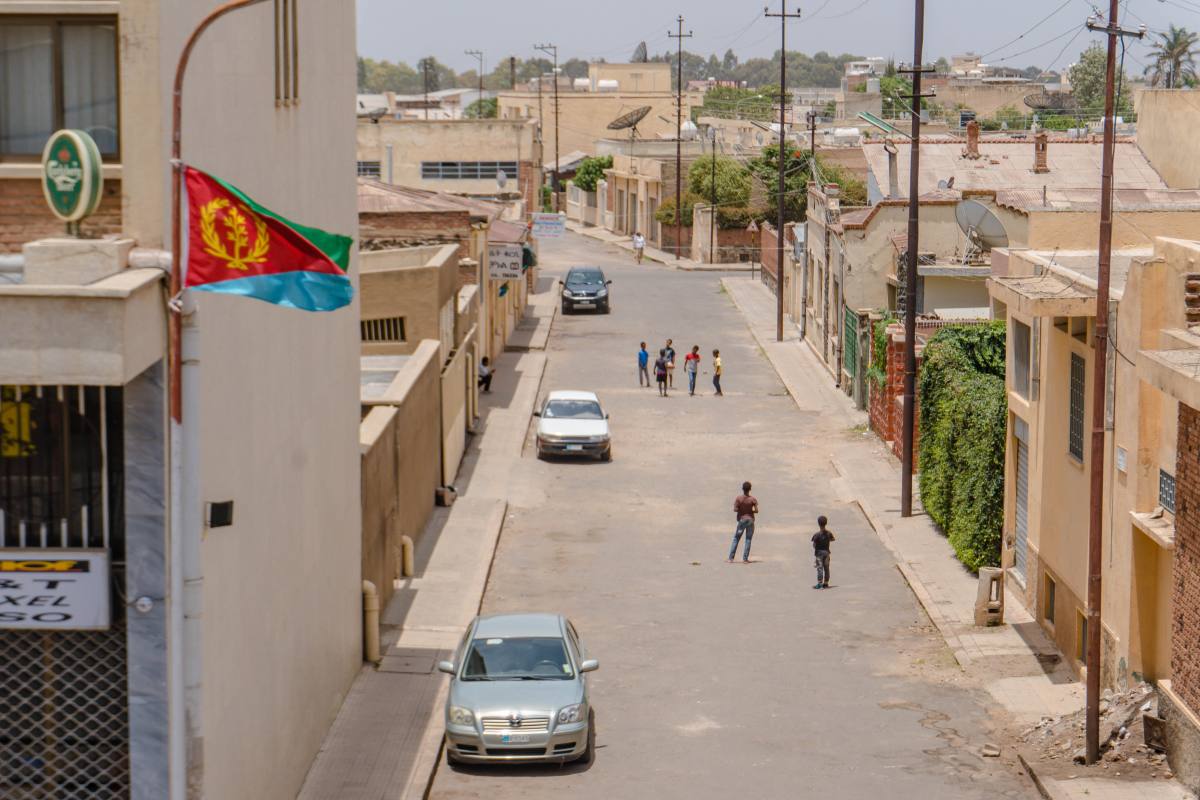

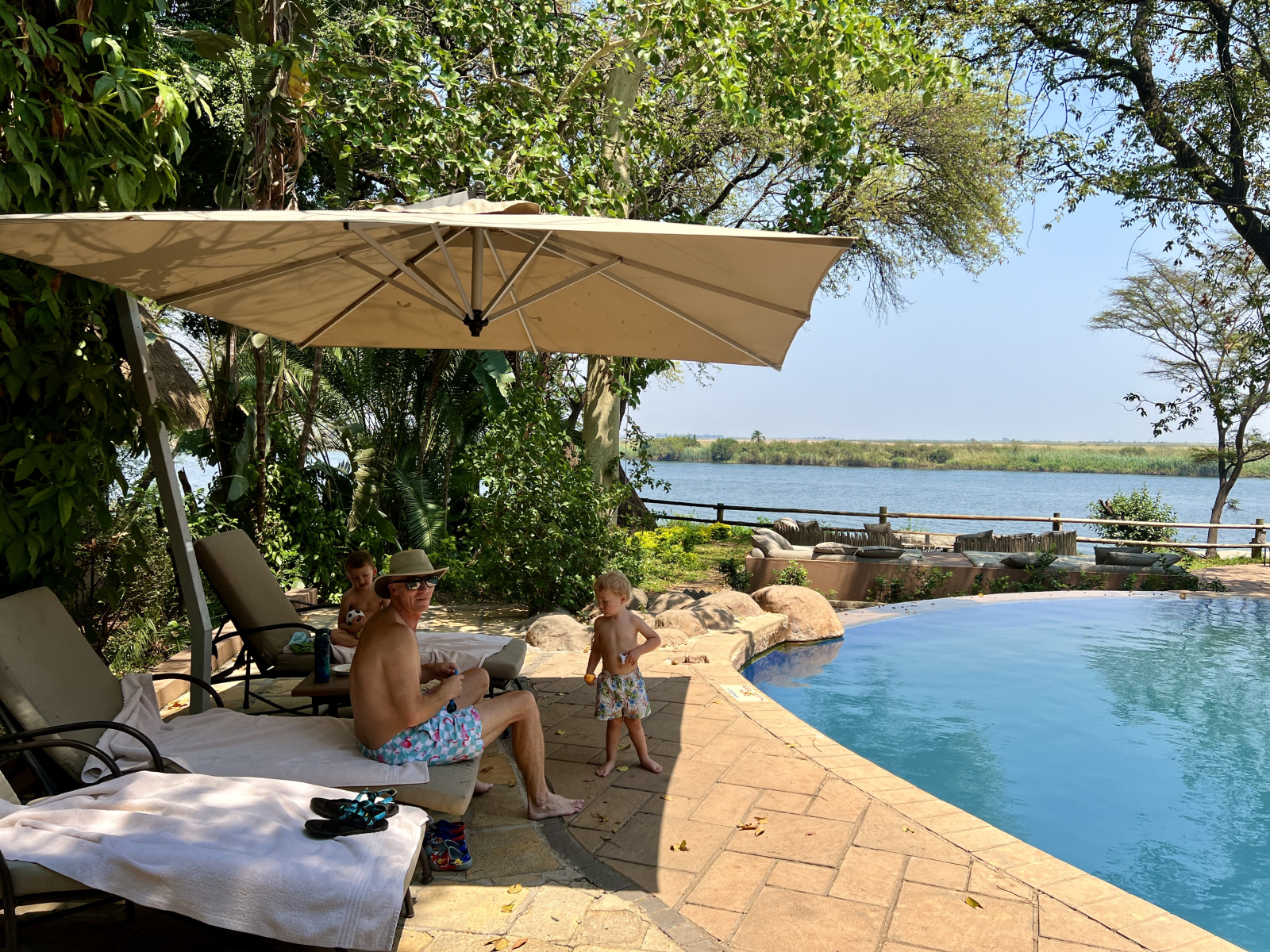

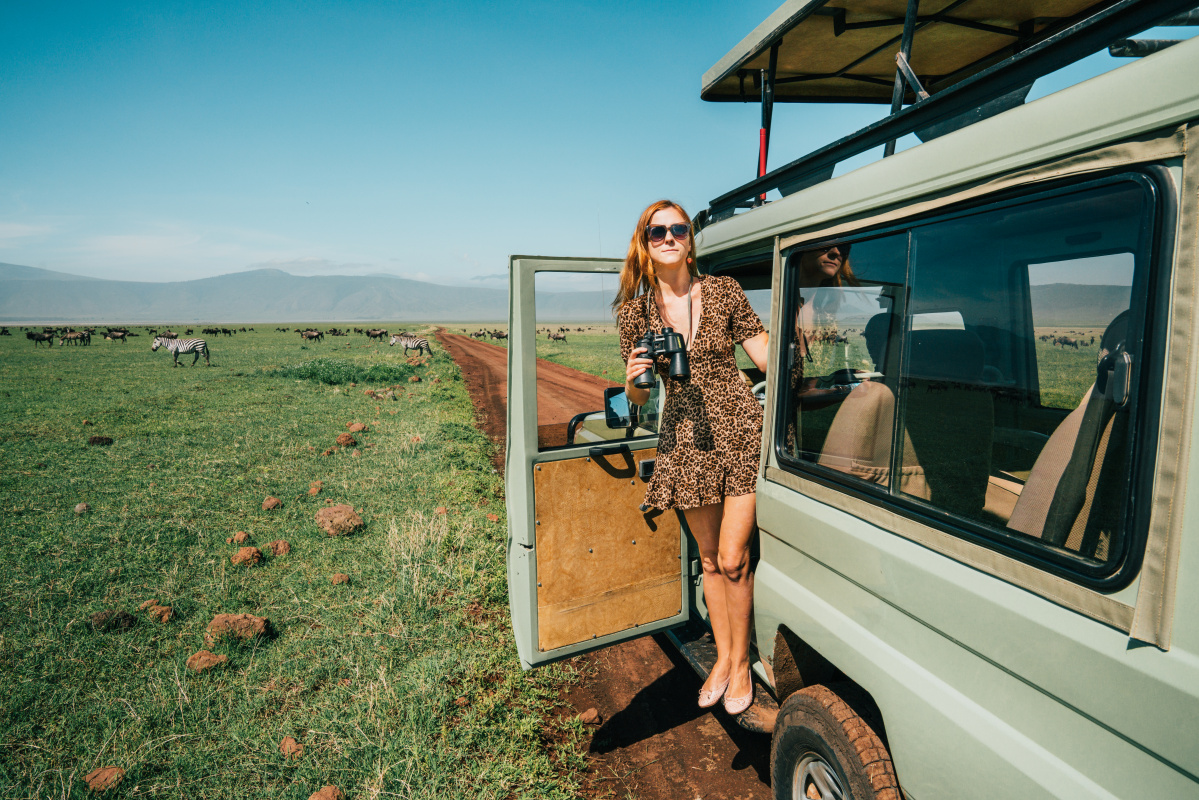
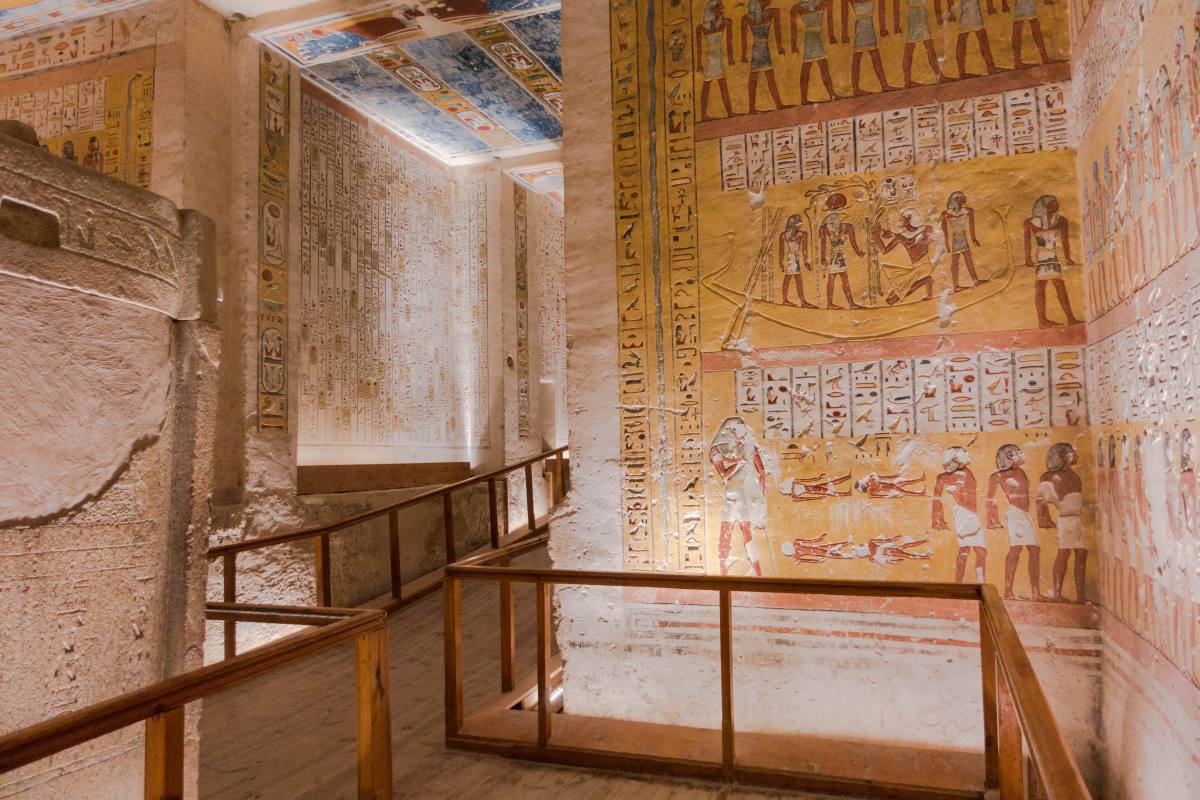
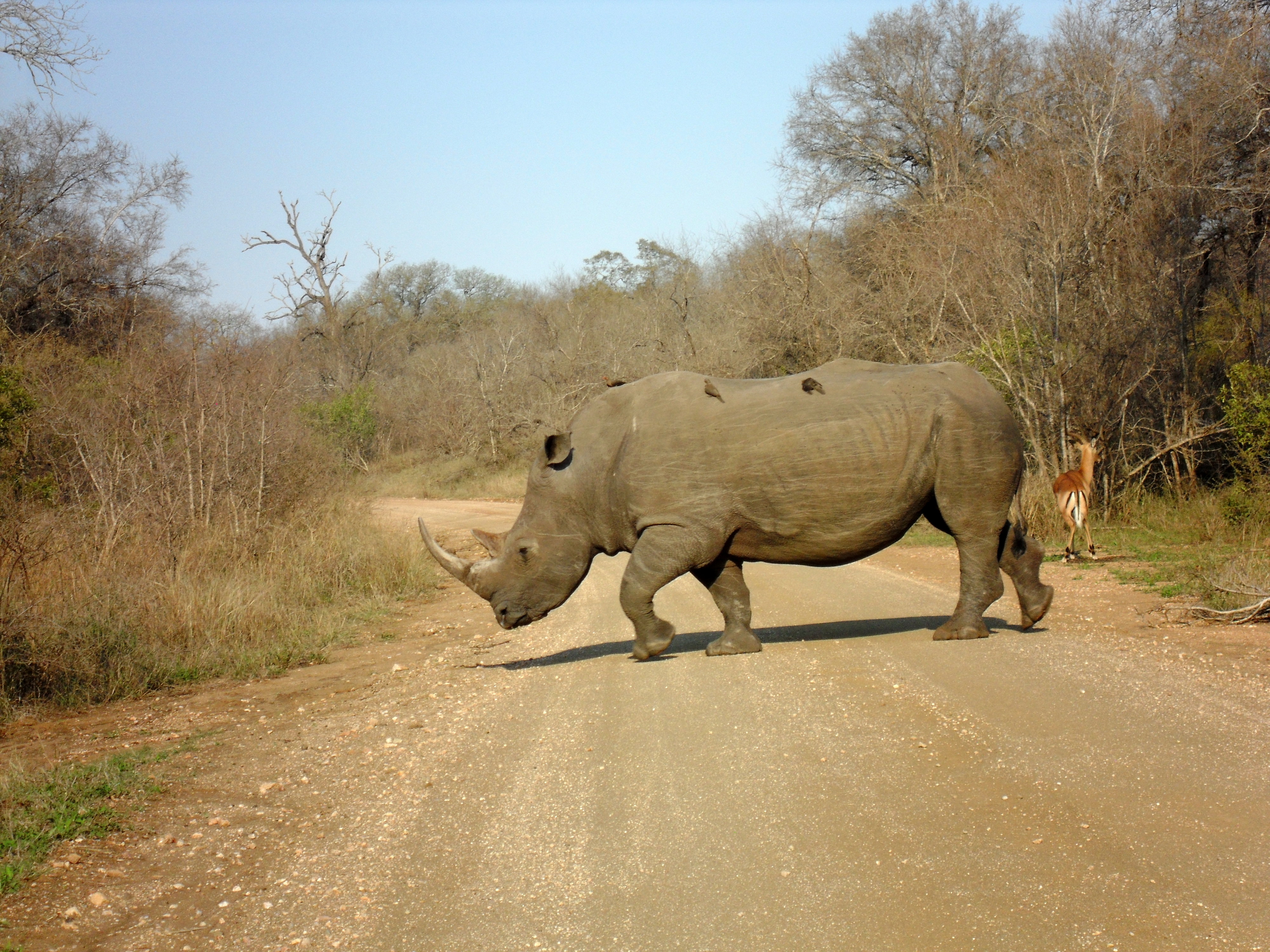
Once I started reading this post, I could not stop until I finished. Great article! I’m glad you shared both sides and your own experiences.
You white folks are not wanted in Eritrea or anywhere else in Africa, go back to the caves of Europe.
ok STEVE :)))
Steve,
I don’t understand why are you being hateful while your last name is “Whiteman”!
Thank you for presenting “both sides”. It’s such a tragedy that after so many years of war, Eritreans are oppressed and worse in their own land. I’d like to visit a free Eritrea some day soon, where people did not need to flee in order to survive or have any freedom.
Thanks for accurately describing the Eritrean situation. Btw, it is ‘Prison Break’ that most of the young watch at the internet cafes. Just to learn how to escape from the giant prison called Eritrea
Great article about a place that I had never even thought about visiting. Interesting to hear about the situation there and amazing that you went the length to get the true story about what it’s like.
Wow !! Too brave, to go , to any African or Islamic country. Many criminals & deceivers $$, around them. I even got cheated,,some, from a Uganda Af., couple. And, much, a USA friend, from Kenia Af. I think you over expose, for a vanity foolishness. But its, your life, and I’m, sorry for you. God has keep you well, and I hoppe, He continues doing it, for you and your husband Matt. Because Life is very precious, ( as your person is ), to take that and other risks , that you have taken . Even traveling is an unnecesary risk 🙁 . ( I write you this, because of the appreciation to you both, through your ig postings, hopping , will do some good ).
You are right, I had never heard of Eritrea until I stumbled upon this blog post. Well, it looks like a nice city. And, I’m glad to know that you really explored it deeply. There are some hard facts about the country that you came up with. It was definitely not a usual travel experience for you.
Wow, what a great article! Thank you for reminding us of the excitement of getting out of our comfort zones and showing us such a different place. I’ve really enjoyed reading it throughout. Thanks 🙂
I love reading posts like this! It really transports you to a different place. So today, I could experience a bit of Eritrea thanks to you and your travels, thanks!
Of course, you somehow managed to find a beach camel again… 🙂
Loved this write-up! It’s nice to get a glimpse of what it’s like to travel to these lesser-known countries.
Thanks for writing this awesome article and examples helped alot..please keep on writing
Thank you for sharing information with us.
The places you have mentioned are the very best. Thanks for sharing such a nice information
I have never heard of Eritrea either before reading this post. It’s amazing that you exploring and documenting all of these interesting places around the world.
Hi,
Informative article! Thanks for sharing such an useful Information. This is truly a great read for me!! Once again, thanks for the quality articles you post on your blog
Wow! What a great post about a nearly unheard of destination. Thanks for all of your advice and information.
I loved reading this article…So much to learn about Eritrea..Thank you for sharing !!
What an interesting article. Thanks for introducing our country and the situation so genuinely .It is in deed a scratch of the facts that in the country is really happening as you said, but simply wonderful presented.
A great appreciation and admiration for your efforts from an Eritrean living in abroad.
Nice Blog . You have shared lot of information about Eritrea. Thank you.
This is an interesting article! Thank you for sharing about your experience in Eritrea!
Wonderful Article about Eritrea. I couldnt agree more.
great article! Do you have contact details you are willing to share for local guides etc?
The company is called Asmara Grande.
Hey Anna, I am well familiar with Eritrean pro-government Twitter trolls. It seems that their comments are roughly split in two: if you post something positive about anything, they retweet endlessly thank you for showing Eritrea as it “really is”, whatever that means – if not, then lo and behold, it will be a Twitter war. I have had many such entertaining discussions. Nice article, though not sure it was a Turkish bank that got bombed in Massawa. Did you mean Banca d’Italia?
On another note, I love your blog name. My name is also Anna, and my page name is along the same lines! : )
@anjci, They way that they have compared it other African nations purely because it resembles Europe is atrocious.
There always seems to be comparison with other African nations when discussing Eritrea. We’re all unique in our own way and I don’t see the need to compare. That being said, Eritreans are friendly and dignified.
I am proud of you may dear to visit to my lovely country .
Loved this post! So many great things
thanks for sharing such a useful information.
I dated a young lady from Eretria. She was a wonderful, kind and loving woman. She managed to move to Canada. She had shared experiences that she had from the war with Ethiopia. It’s sad to see such wonderful people have such horrible experiences in their own country. She truly loves her country. God bless them all. I hope their conditions improve.
Hello, as I read this story, I was thinking to myself this is a pretty shallow observation of Eritrea. But at the end of the article you have come to admit that you “barely scratched the surface” and I respect you for that because that is exactly what you did, although some of your claim is factually wrong and pretty much a repeat of the accusation that all those “researchers” that never set foot in the country accused the Eritrean government of. You in fact went farther and make a bold claim saying “80% of Eritreans not happy with their life situation”, according to who? This type of baseless tourist observation is that gets propagated and a false portrait of a country is painted. Thank you for sharing your experience all the same.
@Bin, hahaha yea more like 100% are unhappy with their living situation there! Even if Issayas, the president could flee he would 😂! Don’t deny the truth please! You don’t seem like you live In Eritrea, which helps her statement come to life! If you ask any Eritrean that’s currently living in Eritrea right now if they’d like to leave the country for better opportunities and better living conditions they’d say yes without even a thought or laugh in you’re face cuz it sound too good to be true, and probably think you’re a spy!
Just cuz people are unhappy with their quality of life in Eritrea doesn’t mean they hate their country, and that’s what you’re not understanding! Everyone that has fled the country or left the proper way (like I did when I was younger w my family before immigrating got complicated and impossible), will tell you “we left with deep sorrow in our hearts leaving behind our beautiful country, family and friends for a better shot at life and to possibly be able to provide for the family and friends you have left behind in hopes that things will get better in Eritrea, and you can get educated and come back and build the country back up, but w our government it’s kinda impossible at the moment! But God willing this will all change soon! And I don’t blame everything on the government. I understand that there are other factors as to why we’re not as prosperous as we would like to be, such as being sanctioned for a long time; but I also don’t see the govt making all the possible changes and improvements that it potentially has!
I’m neither anti-govt or pro-govt! I’ve been on the extreme ends of both sides but I have now realized that both sides have points and I will agree with the truth they both present!
Anna, I Just wanted to say Great post! And I hope you can come back when we’re in better shape next time around! We Eritreans love being hospitable and are happy to see people coming to visit our country and wanting to learn and see for themselves! I must say you’re brave for make this trip, although we’re very friendly people; the govt isn’t so friendly to journalists or people of that sort for whatever reasons, which some are obvious and some not so!
Note also for readers: Eritreans currently living in Eritrea are not oppressed by the government openly, u won’t see police or the army come to the city and do horrific acts everything’s is very low key and secretive! If you go there you’ll it’ll seem that most people are probably living happily in a low income status; but don’t be fooled we are generally happy and optimistic community and don’t like to show our struggles, we thank God for everything that’s possible and pray for better conditions as we are pretty much religious people! We don’t like pitty or seem ungrateful, and we are generous even if we ourselves don’t have much for ourselves cuz we know the struggle so we don’t want others too feel it too! And we know God will bless us in folds when we do the righteous thing and are generous! So don’t be surprised if you go there and everything seems so peaceful and safe! Eritrea is really safe to travel to cuz we are a community that protects each other! There is no such a thing as “I mind my own business when I see something wrong going on”! We all stand up for each other! If someone gets robbed we all run after the robber and shame them and punish them severely and disgrace them to not repeat it again, when someone is getting abused whoever sees it happening steps in and takes action to protect the victim, or help to calm the situation, even if we’re told it’s non of our business and to step back, we don’t back down cuz we know people can do irrational things in the moment of anger or frustration! That’s why it’s so safe! we all look out for each other and we don’t have by standers which I love and miss about Eritrea! I’d love to see more of this in the west! I take pride in this practice cuz I know other neighboring countries are slowly losing this practice, which is why people are scared to travel to the other surrounding countries!
I went to Eritrea last year and took my kids. We had a great. My 11 yr old son said its the place he likes best as he felt at home there. We went to keren, Asmara, and Massawa. We paid a local fishermen to take us out to a desert island in the red sea. We visited the tank graveyard and the metal market. Eritrean people are beautiful.
Thank you for sharing your experiences, Anna. I was searching for information about Eritrea after coming across information on another site stating that the country (which I had never heard of) is one of the 4 highest sources of human slavery on Earth. Complicated indeed.
Economic hardships and desperate grasps at personal security and higher standing by governing persona who likely are trying to do the best they know how is a frustrating situation to contemplate from another reality. One where the overloads are motivated by corporate gain.
Thanks again for allowing me to add to my knowledge concerning this region. Very beautiful of you to care and take the time. Many blessings : )
James, in Canada
Not certain if you’d be able to answer, but I am interested in following the path of ‘Gazelle Force’ during World War II, but I know travel outside of Asmara, Massawa, and Keren is restricted. How would I be able to organize a road trip from Wachai > Keru > Agordat > Keren > Asmara > Massawa if it is indeed possible to do so. Thank you for any information you may be able to provide.
Have you seen my other post on traveling to Eritrea – https://annaeverywhere.com/visit-eritrea-visa-safety/? It’s possible to do your route, but you need to get permits through the local company.
Thank you for visiting my home land …?? ??
Anna, definitely you will be welcomed to Eritrean house anytime. Your report and observation are accurate, thank you for sharing your experience.
We had enough of WHITE SAVIOUR mentality, sick and tired of all and every thing white people know it!the world we live in it is better to blame your ancestry and your politicians fob us in the name of democracy and other claptrap you and your people use to kill and maim usenoug of WHITE SAVIOR mentality!!!!
Hi Anna. Eritrea is something special. I’ve just been there 8 days on my own. Got a Tourist Permit nearly immediately: local bus to Keren and taxi (a taxi driver agreed) to Filfil. Asmara with Crystal Hotel, Ghibabo, beautiful buildings, clean streets. I loved walking here in the evenings. Yours Tage Bonde, Denmark
I am one of those national services people you keep referring, I have beeing in active services since 2005 not always in the milltery , and you keep asking why you where not allowed to travel anywhere , you r a spy , do some research see why Eritera doesn’t like u , also Israel boms some one who doesn’t know their own history say that thouse bomb where probably made by your. County USSR. so stop appering like u care ,also less of u cleaner beachs and to cought cauban leader” I am going to flash Cuban toilet in to the USA” as to Europe
Dear anna
Dear sister i am thankful sister gor the last video you shared before a month about traveling to eritrea. And the most that i appreciate is what you done on the last duration time of that video when you speak the clear truth of the country and problem of the people. thankyou very much sister. Because what you done is like lens or eyeglass for the public foreigns that they dont know anything i see it and say which is comfort to live & dont see its entire problem.
Would it be possible to speak to you (or converse via email) about a matter I’m involved with which concerns a citizen in the country of Eritrea? It is a sad, yet fascinating, matter which could result in an unbelievable change in the standard of living for a mother of seven.
I was living in Eritrea ( Asmara) for 4 years and as you said Eritreans are very friendly and hospitable. They made me feel really good there. Wishing to the Eritrean people their live conditions change one day and then they’ll not continue immigrating in mass as they are doing. For Eritreans the family is everything.
Absolutely!
Eritrea is a self reliant nation and an exemplary country to other African nations to follow its steps. No to neocolonalism and Eritrea only bows to God not to western powers.
Hello Ana,
I tip my hats to you for writing such a balanced portrayal of Eritrea. Actually, what you wrote regarding the hellish trials and tribulations that Eritreans go through this dictatorial regime is just a tip of ice berg. You just scratched it barely. At least, you mentioned some, boldly. The rest will be exposed once this junta is deposed from power once and for all through natural death or some sort of Eritrean peoples revolution.
Thanks a lot, though.
FYI- to truly understand Eritrea, you have to research our history. Our most modern history begins when the USA denied our liberation/freedom to control the Red Sea (attached). From 1952 until today i.e. 71 years later, the US gov’t (+Western nations) has exercised everything in their powers for regime change, proxy wars, youth evacuation (economic refugees), and UNSC resolutions. Tourists that experienced travel restrictions inside Eritrea, no internet and etc., best understand our background. We have a superpower as a prime antagonist.
https://www.facebook.com/NationalErInterest/videos/former-us-secretary-of-state-special-advisory-john-foster-dulles-speech-at-unsc-/822922565350283/
The problem you people don’t understand is the same country you come from is the countries that impose sanctions on our countries/African countries. Your country never dared to sanction or criticize Isareal for the current human rights violations. Don’t come tell us this recluse country blah blah…